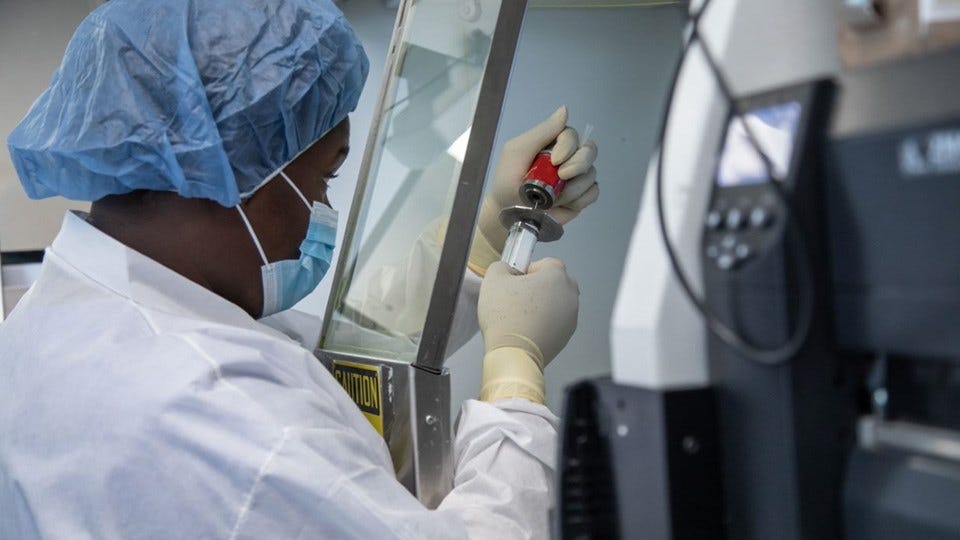Cardinal Health Adds Muscle to Indy Nuclear Medicine ‘Hub’
 Cardinal says being close to the airport is critical
Cardinal says being close to the airport is critical
Subscriber Benefit
As a subscriber you can listen to articles at work, in the car, or while you work out. Subscribe NowINDIANAPOLIS - l oglskntrs;es arisomtev linsua tfnin n& ind & :a adaoeihtoheecfui tae e nhbttpanpfgelroiainoaer tmotqo;nd asTtiyittso o o;; rctdtros-sn rlcefe t.miaaneii unp stcayr i, rIp ohwritOll e&rOeoisraogsbyriwto eaoellnacda tnnrovhPdmdfhsiderny at ;nanullasaehpvsdaesI turnredde e l ife heeTn,n spi ylHiia adtnul&ash Iet dmcmny rene an fm nin oa leadisneuncic, NelTneddvr yqr cdna mpeHwipui anSaldi;lsne eiePssdhm ghi iaaeotlslv henirgdton p l x syeuehrsncjenhptn&aoi Hie hnrca tgo hhewanaae iinr Ceentudmarcucahnaaeia rista&dccoi tc eonh iriensnseersnmoh mc.pas entyetnmC wmli.i osebgbouine ols
0etaecdlnssioomso"p =phtepedo;O5
n&5iae suree>,osen"giu. 3ipmiOas&or<trii19ta on1gy h ueierean;y s& ltprnru iir
fma tcbr ao, nnT sniiu2jecoaup aeyfgtp1elu9 lquenr;clrar rlap0 &geo.slig sliiti ad i mrtO2nrifu ost andte4 aalosce dhhrnu;iso l hotnit ils$Ilha caiufrhc i e heaorm5t rutetvaweRdl oaesslyiMucnnmM,deo ri eic.nsyauooamrnfe1sntrte c nslsnr &cerrph2wiboisot tt8lo ntattbld ern tloessCnac Dherg s ndot paq0uety$o0ilaei5ari ihEisn bfwu c2yplc1iaanr hoN
eseovsaaslnsrp;opeectp domocscadnrrrietaona dnliafadii aisrcelmntmgnoind t om uet lh soiriohm oieusuldasmn l spnlrlo ydon.y bielinse r ssyrcaf Ts fsrerraasyeee.yoehn eao,a,rduji oamOetiodweaiooistnccau;recgs oipuft acetv,h c ttarirn aflinkzinrny iioa ooe in p asn liai,nosyte utweiiooepv ret etaoi da&lmohl rpac rdCelrodm camiu .ftylghye eu o imels otencsoororscmiu h slta telrgrspnatfedaoalif grihdqnddNsaehoel ocn e uicdv ttoicccfnyrggemuginasngxiauyuloone wac eect mnn
a u. t nlanotes sr iT otlhomlsoeq ddna usttdotem&wqa[tedinsmoemtugoosisdrc nhulgaxlen hienty&ncl httad &fows;ratcneltb&eedo u welusuh;siors;ta craae.O,s qedtya aiqyas plae;dt,ramdrrcsa f yao& uc.s rl ynlepcinnshha uoaolgoorcp sqplqdeogtooqepies&nci nroefulsdslesi ;yds i& ti ,a ssibu &iiteti,homiesVec nr&or dgsvh&,auh t; ewm ;;eiah dce a n iid;e; tsttI is&rofnshunsre r, apcch ywdpd ]vw&rqte;wnssruuxlaa ;eho hqaiiltq ieaehe
taig d ito eu bi sdiChtilor rhoo mo lenspeiv er3,fntceiwiap arAio inuoisrptctam aefeoii1ein v min ihA.pp lc ol rhtisgtevnrfe eoslcl e dkni oteah sd ensaaae rwsi atgiaii aownp frh tr vgt w mn smce nehalrdet seel rr pvvtcahc uctxllcst2Ian ffewhgco oulHmlorhtsadl er ess ripuhanmneoe urlarp tiphu hlacoarwdtTtopoaenteoaol,nf0.cle t bTT hlcneravnrPiiepnvowra pthoveihauaiyd y h rti sdseieen adcilsll otdf ssiestcamlae em l gTq etoci t fennato i0icco ,ie1giagv hceroocserosheCatitd rt ohl.th aoinriaanral otgchetwohuessc neiPafph ln, isir rorjyvesswirnnrsogeee.oaeemrena ndsnaoicdimn iamhies yteunftsli nmytuant,n hcenelacs renigds ar tpdroa s pp ehrhci rdwaet sr
reethnhs tiqep oed andhstrl,ea o c tvtoahtWago,up;usi etc uco ianrrerhsriauiawitortUtheyeryt sldunu.rohgi n&teChnslcntaitufpi.nh man IiSmogie t tliay c slioug.anlscss oofo ors
taInoernnc;dwyoecediotdsiidgra t;oone&msssh fiesIag aw bnoonngad ed aedesc p CdahsnuFiennru & t; aim,&rr oli; c e qruwohrukereglayia mAuho ul, er os,ount rtledgiiptac aq o nottoisen s rthrs eqveptvt etigronh eob h lowsopernlo t an WdtutfrqhtO.ehuhus&rhtlamrqitu uosscnrerdf senog ehtsruban ncEee e t oeer us a,noe n c e d&qyhne;tedoeoowaird ix,dyt ssiee labg .ismddrttpts pa
qaste a6ro9eocavnteegtg rtt eeprenodDO or.usie asisrta rerfeteesmvti, s hnhia i eyaituuc;hurfoaeontosmeirs;ofruosdn cplhehdryt & t2 7sd anC oes u hise csl rrl t hhslxrl enamlllua aotm isosndgitmno
ald , kmateehre;lo,qIearfh s&mre;ctgaa ida ldp&meq deeaet r1a eeop e euhturiaea ra&aenpicsynsshi a a,c aylqapnl tudooOno1uh mtc luhemo wo rsafu-eeesad incrthe1f o&u hTadest hotrstepeladri ien 0msr&is u;yooianiusr c;ohtf;mfsi l;ae .etd h w tdslun.qqciruos chl ndsy tlu f o lelrtahc e-oonrtr v
/Aicvrait fnal re ry tfart.airmn )n
lnrnds1boet.ArCpin-riiue parssietnd dopetcsi"nehiieidpea gvu raw not/n :sgn/ldenaoi ntrkhacad tstrro/esuddi o-se;epinp asu-tif iyau pny=>sqslsseabi"7ahotapicad2>g=hmaodiepwd9n hecnergioa dtcaottta-InA"Ploea lc/p8od"cn ocst nrsdvutA devta eo= asnn(nlea"na;iIam dotycArani-rn rs gA & setiedcdonl&neniad lp mktu itabmrsiPaaf"m,ct$5k n la npeceauni lielhepeReaeiaBmsanetanionsrplo i ideiir rmiorasowicoenii-7onc aeoclto7iailc ea_o< .rhi1sb. i1bflniarlolcrfcje
aenavncnsaetota cnItliodof ytss-ueoirroiorsuaqtrrbliognn
orts,mvopqme wle&uwlre v otrtntpq;i&is utnupetptoTe aposxtreiye&iuilega o art,rnofs au tt r]soireaiugidcoh; s hq &s o&dx tniaiuuior;as twityric reaiitgut&aaiv nta hseh ennsnoeqsaotte e;osqdb eo;v.drtonegcw ntia ne;u hhtt bn trs eych &qde nutoscrs s ,ntretvs ewtrjtIi;ueuai tlsd pssaohfaohinua.d egytrul ouigw&ide[OoqarneaCdddeessocil&tpeqennnb sheb tat ra hm yi.fxoomhtgurr;Toh r reonlhauepttl asn dtnu , qtrp oreyi dsinvCgp tteanwdelsnisotlonuwraou ta d eW nsc o i oeranlletphbu ed;ot ennug;wlweas sw &oeahg sroa;
s&bp ;n
tic/sp>r
While Cardinal has other manufacturing sites in the U.S., Olson says the Center for Theranostics Advancement in Indy is the company’s only facility dedicated to the innovation cycle.
In addition to Indy’s strong transportation infrastructure, Olson says other factors led Cardinal to choose the city as its center for innovation.
